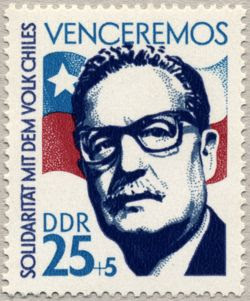 studying to gain the proficiency in Spanish that I have, and I tell them that since middle school I have studied the language. I never thought that Spanish and Latin would take me so far and give me the opportunities that they have, but communication after all makes all the difference in the world. What a marvelous trip it has been!
studying to gain the proficiency in Spanish that I have, and I tell them that since middle school I have studied the language. I never thought that Spanish and Latin would take me so far and give me the opportunities that they have, but communication after all makes all the difference in the world. What a marvelous trip it has been!My dad first took me to Guadalajara, Mexico, in the summer of 1998, as something of a graduation present. Both a blessing and a curse for them it must be, to see their son so far away but proceeding with ambitious and unconventional projects. I haven’t been able to stay away since, and returned to Mexico several times since that first summer trip. On this, my first trip to South America, I have learned some of the differences between the northern and southern hemispheres. There is certainly a different vibe, and to come back to see more of the continent I am glad to have a good picture of one its most characteristic—though least well known—nations. And like my first trip to Mexico, this will likely be the first of a series of visits to Paraguay, to say nothing of South America.
Writing in the final pages (literally) of a notebook that I began during the first developments of this trip, and am glad to say that many of the objectives and dreams I had back then came to pass. I wasn’t able to do all of them, of course, but I did some besides. I met some incredible people—I have many to thank and many that I will miss. Those who helped me so much during my trip,
 both professionally and socially, exhibit a fabulous combination of wisdom and character; the Ruffinelli's are the best family one could hope to inherit as I did. My projects were creative and practical, and I leave with the feeling that I have made enough noise to make a difference in Paraguay. The truth is that you can estimate what you will be able to do in a foriegn country, but you hit the ground and see what the circumstances will permit. I would say, though, that I was able to work pretty well around them.
both professionally and socially, exhibit a fabulous combination of wisdom and character; the Ruffinelli's are the best family one could hope to inherit as I did. My projects were creative and practical, and I leave with the feeling that I have made enough noise to make a difference in Paraguay. The truth is that you can estimate what you will be able to do in a foriegn country, but you hit the ground and see what the circumstances will permit. I would say, though, that I was able to work pretty well around them.Talking the other night about how life is
 commitment—that at some point you have to put down the idealism and commit to either work, children, family, or another facet of human life, I reencountered a struggle that I have long waged. Several people asked me about my commitment to return to Paraguay. While I am always avoiding them, this is one that I can take, for I am sure that I’ll be back and that I will continue to work with the nation in the back of my mind. Speaking of commitments, it’s back to work on the 14th—as long as my desk and position are still there. It would be liberating if
commitment—that at some point you have to put down the idealism and commit to either work, children, family, or another facet of human life, I reencountered a struggle that I have long waged. Several people asked me about my commitment to return to Paraguay. While I am always avoiding them, this is one that I can take, for I am sure that I’ll be back and that I will continue to work with the nation in the back of my mind. Speaking of commitments, it’s back to work on the 14th—as long as my desk and position are still there. It would be liberating if  somehow it were not, though that is the idealist in me talking. To listen to him I'll have to do it either in my free time or find a creative way of putting money in the bank. I’ve enjoyed his perspective for the last several months, and I'm pretty sure the idealist will continue to show his colors in whatever life awaits me the States. Back to the old, new life.
somehow it were not, though that is the idealist in me talking. To listen to him I'll have to do it either in my free time or find a creative way of putting money in the bank. I’ve enjoyed his perspective for the last several months, and I'm pretty sure the idealist will continue to show his colors in whatever life awaits me the States. Back to the old, new life.





















